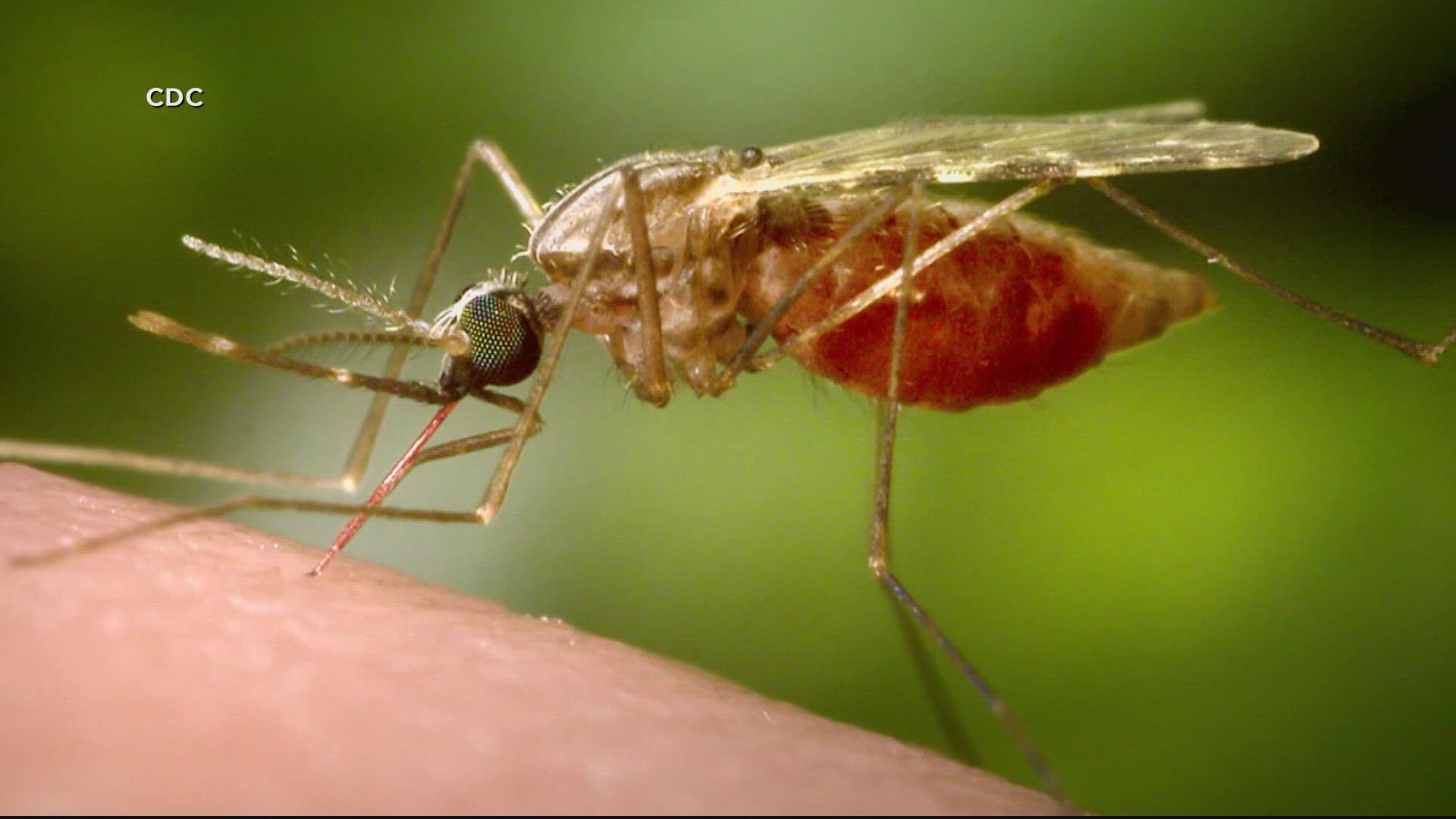BALTIMORE — A Maryland resident has tested positive for malaria.
Health officials say this is the first time in 40 years they have seen someone who has not traveled recently catch the mosquito-born disease in the state.
“Malaria was once common in the United States, including in Maryland, but we have not seen a case in Maryland that was not related to travel in over 40 years,” said Maryland Department of Health Secretary Laura Herrera Scott. “We are taking this very seriously and will work with local and federal health officials to investigate this case.”
The infected person was hospitalized and is recovering, according to state officials.
The Centers for Disease Control and Prevention (CDC) say more than 2,000 malaria cases are reported each year in the U.S., with most cases occurring in residents returning from international travel.
Maryland typically reports around 200 travel-related malaria cases each year, and the Maryland Department of Health investigates each case for cause and risk.
Symptoms of malaria usually appear seven to 30 days after a bite and include high fever, chills, body aches, diarrhea and vomiting.
“Malaria can be very dangerous and even fatal if it is not treated, but early treatment reduces the chances of complications,” said Deputy Secretary for Public Health Services Dr. Nilesh Kalyanaraman. “We urge the public to take precautions against mosquito bites, and if you develop symptoms after traveling abroad, seek urgent medical care.”
The CDC says the risk of anyone catching malaria locally remains very low.
However, here are some precautions Marylanders can take to prevent mosquito bites or travel-related malaria:
Use insect repellent containing DEET on exposed skin.
If weather and heat allow, wear loose-fitting, long sleeved clothing.
Keep windows and doors closed or covered with screens to keep mosquitoes out of your house.
Empty standing water at least once a week to prevent mosquitoes from laying eggs.
Repair broken screening on windows, doors, porches, and patios.
Before you travel, learn about the health risks and precautions for malaria and other diseases for your destination.
If you are planning to travel abroad, check with your health care provider for current recommendations on prescription medications to prevent malaria.
If you have traveled to an area where malaria transmission occurs more often, and you develop fever, chills, headache, body aches, and fatigue, seek urgent medical care and tell your health care provider that you have traveled.
WATCH NEXT:

